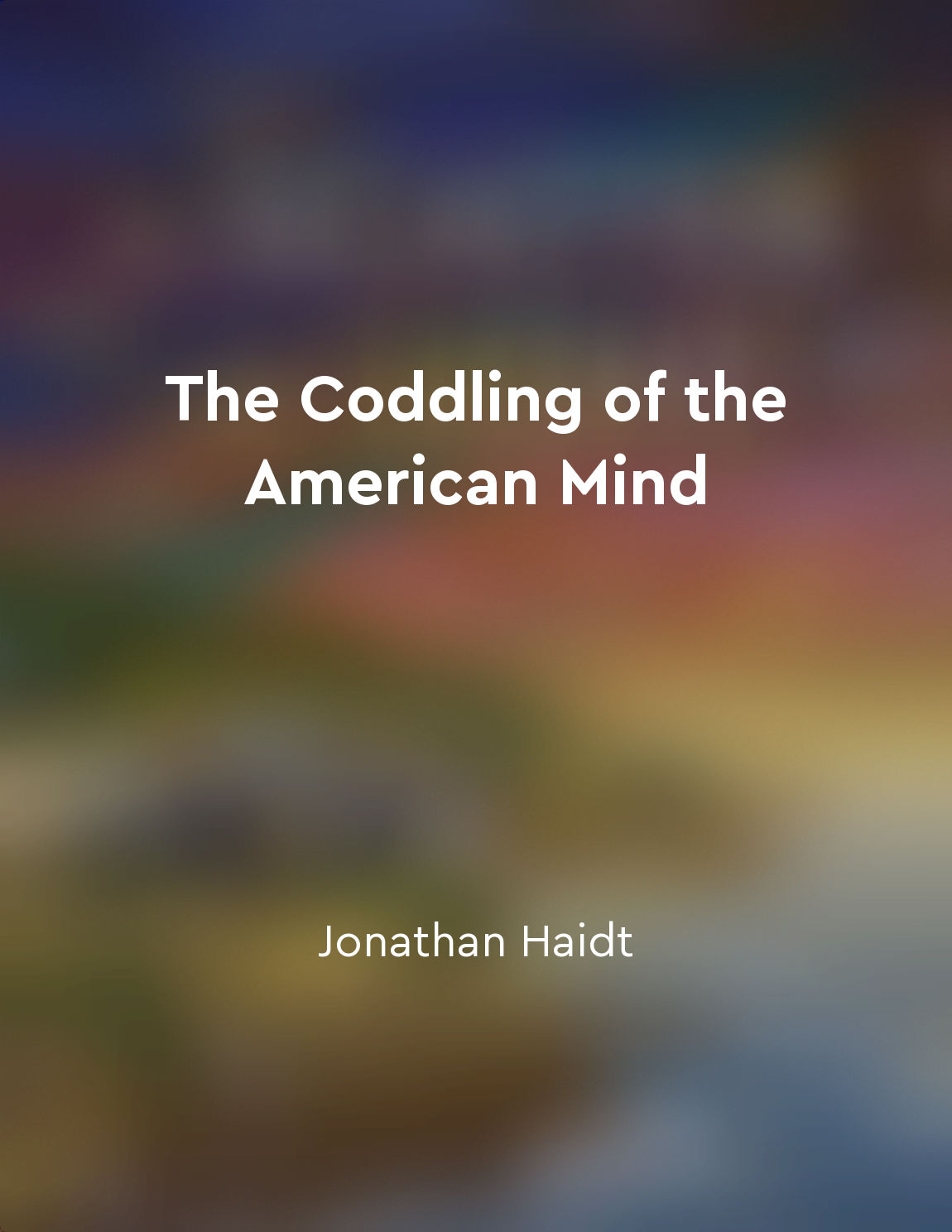The distinction between open and closed societies is crucial from "summary" of The Open Society and Its Enemies by Karl Raimund Popper
The distinction between open and closed societies is a fundamental one. The differences between the two are not merely superficial, but go to the very heart of how a society is organized and governed. In an open society, individuals are free to express their opinions, criticize the government, and engage in public debate without fear of reprisal. This freedom of expression is essential for the functioning of a democratic society, as it allows for the exchange of ideas and the challenging of established beliefs. In contrast, in a closed society, dissent is not tolerated, and those who speak out against the government are often silenced through censorship, intimidation, or even violence. The lack of freedom of expression in a closed society stifles creativity, innovation, and progress, as individuals are afraid to speak out and challenge the status quo. This leads to a society that is stagnant, repressive, and resistant to change. Another key difference between open and closed societies is the way in which power is distributed and exercised. In an open society, power is decentralized, with checks and balances in place to prevent any one individual or group from becoming too powerful. This system of checks and balances is essential for preventing the abuse of power and protecting individual rights and freedoms. In a closed society, power is centralized in the hands of a few, who use it to maintain their own authority and suppress dissent. This concentration of power leads to corruption, oppression, and inequality, as those in power are able to exploit their position for personal gain. The lack of accountability in a closed society makes it difficult for individuals to hold their leaders to account and demand transparency and fairness in government. The distinction between open and closed societies is not merely an abstract idea, but has real-world consequences for the individuals who live in them. Open societies tend to be more prosperous, equitable, and peaceful, as they allow for the free exchange of ideas, the protection of individual rights, and the accountability of those in power. In contrast, closed societies are often marked by poverty, oppression, and conflict, as they suppress dissent, concentrate power in the hands of a few, and stifle innovation and progress.- The choice between an open and closed society is a choice between freedom and oppression, progress and stagnation, democracy and tyranny. It is crucial for individuals to understand the differences between the two and strive to create and maintain open societies that protect and promote their rights and freedoms.
Similar Posts
Use storytelling to make your message more compelling and memorable
Storytelling is a powerful tool that can help you connect with your audience on a deeper level. By weaving a narrative into you...
The normalization of cruelty results in widespread moral decay
The normalization of cruelty is a phenomenon that can have far-reaching consequences on society. When acts of cruelty become ac...
The free market promotes individual freedom and economic growth
The idea that the free market promotes individual freedom and economic growth is a central tenet of classical liberal thought. ...
Propaganda
Propaganda was a fundamental tool used by the Communist regimes of Eastern Europe after World War II. It was not simply a matte...
The foundation of democracy lies in respect for human dignity
The core of democratic governance is rooted in a profound recognition of the inherent worth and value of every individual. This...
Popper warns against the dangers of political mythmaking
Popper argues that political mythmaking poses a significant threat to open societies. He contends that the creation and propaga...
Society thrives on equality and freedom
The idea that society thrives on equality and freedom is not just a lofty ideal, but a fundamental necessity for the well-being...
Inclusive political institutions empower the majority and distribute power
Inclusive political institutions are crucial in determining the distribution of power within a society. When political institut...
Idea: Transformative potential of public sphere crucial for democracy
The transformative potential of the public sphere is essential for the functioning of a democratic society. This concept emphas...

Emotional reasoning can cloud judgment
When we allow our emotions to guide our thinking, we risk making decisions that are not based on logic or evidence. This phenom...

